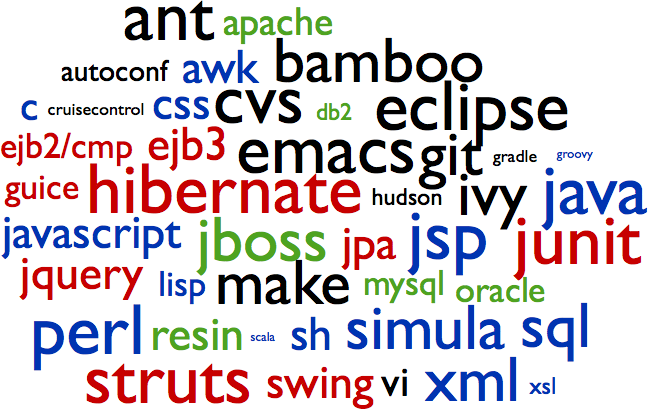First serious type-error
So Clojure is a dynamically typed language. So is Javascript, but Javascript feels so much more insecure to me than what Clojure does. I think one reason for that is that Clojure does a bit more thorough job when it’s compiling.
Consider the following piece of Js-code
function foo() {
return bar; // bar is undefined
}
When evaluating this in the console, all is fine and dandy, but when you try to run it, it blows up:
foo();
//> ReferenceError: Can't find variable bar
The equivalent code in Clojure:
(defn foo []
bar)
When evaluating this, the compiler throws and Exception:
CompilerException java.lang.RuntimeException: Unable to resolve symbol: bar in this context
So a whole class of errors, the dreaded speling errors, are gone. But you still have the type-errors. And that’s what bit me Consider this function (slightly useless, but suits my example):
(defn foo
"bars is a vector of strings"
[bars]
(first bars))
Sometimes you want to call it when you only have one bar, so you wrap the bar in a vector as such:
(foo ["the one and only bar"])
;;=> "the one and only bar"
But, I forgot to wrap my lonely bar in a vector, and noone complained.
(foo "the one and only bar")
;;=> \t
The reason for this is that strings in Clojure are seq-able, which means that they behave as collections.
If they didn’t my code would have thrown an IllegalArgumentException as it does when called with a number:
(foo [1])
;;=> 1
(foo 1)
;;=> IllegalArgumentException Don't know how to create ISeq from: java.lang.Long
Which is consistent with the code in RT.java
